How did the people of the Algarve react to the news of the fall of the Estado Novo in Lisbon? This is the question we propose to answer, based on consultation of national newspapers, such as «Diário de Lisboa», «Diário de Notícias» (DN), «República» and «O Século», published between the 25th April and May 1st.
For the first time since 1926, the press now had entirely free editions, not checked or censored by any prior examination.
The afternoon «Diário de Lisboa», in its edition of the 25th of April, made two references to the Algarve, namely Vila Real and Faro. In Vila Real de Santo António, the situation was «calm, with a lot of interest from the population in the Radio's broadcasts». It also mentioned that «some groups of people gathered around the main streets and avenues making comments about the movement», while the barracks of the Fiscal Guard and the DGS (General Directorate of Security, created in 1969, to replace the PIDE – Defense Police of the State) were closed.
Already in Faro, except for the movement of «PSP and GNR forces (…) in the vicinity of the barracks and in some streets», everything was going on normally, with commercial establishments and public offices open. The people of Faro remained «in expectation, listening to the communications given by the Movement's broadcaster».
The same newspaper reports from the airport, where “an informant from the Armed Forces Movement declared that the situation was absolutely normal both there and in the city”, refusing to make further comments.
If this information was brief, the «Diário de Notícias», in its edition of April 26th, described in some detail that Thursday, April 25th, in Faro and in the region.
Thus, according to that diary, «it was through Rádio Clube Português that the population of the Algarve became aware of the movement that had broken out, during the early hours of the morning, in Lisbon». There was «absolute calm, although there was a rush to the phones to find out news from people living in Lisbon».
The military garrisons located in the district, namely the 4th Infantry Regiment, in Faro, the Instruction Center for Infantry Militia Sergeants, in Tavira, and the Instruction and Auto Driving Center, in Lagos, «were in their respective barracks, as well as the militarized forces, carrying on with their lives normally».
At a civil level, “the greatest calm reigned among the population”, commerce remained open, as did public offices, while road and rail transport continued normally. Schools “operated almost fully” and, as a discordant note on a usual day, in a gray and proudly lonely country, we should mention the closure of some banks mid-morning and the absence of news of a national nature on the Southern Regional Broadcaster This aired exclusively with Portuguese music, with the 12:00 pm and 19:30 pm newscasts being filled only with regional news.
In turn, the «Diário de Lisboa», on the 26th, included a short piece of news from the Algarve, the last of those days, noting that the banks remained closed, while, the day before, «the public, deprived of following the development of events in the capital, eagerly resorted to broadcasts from abroad». In the barracks, the military forces remained on guard.
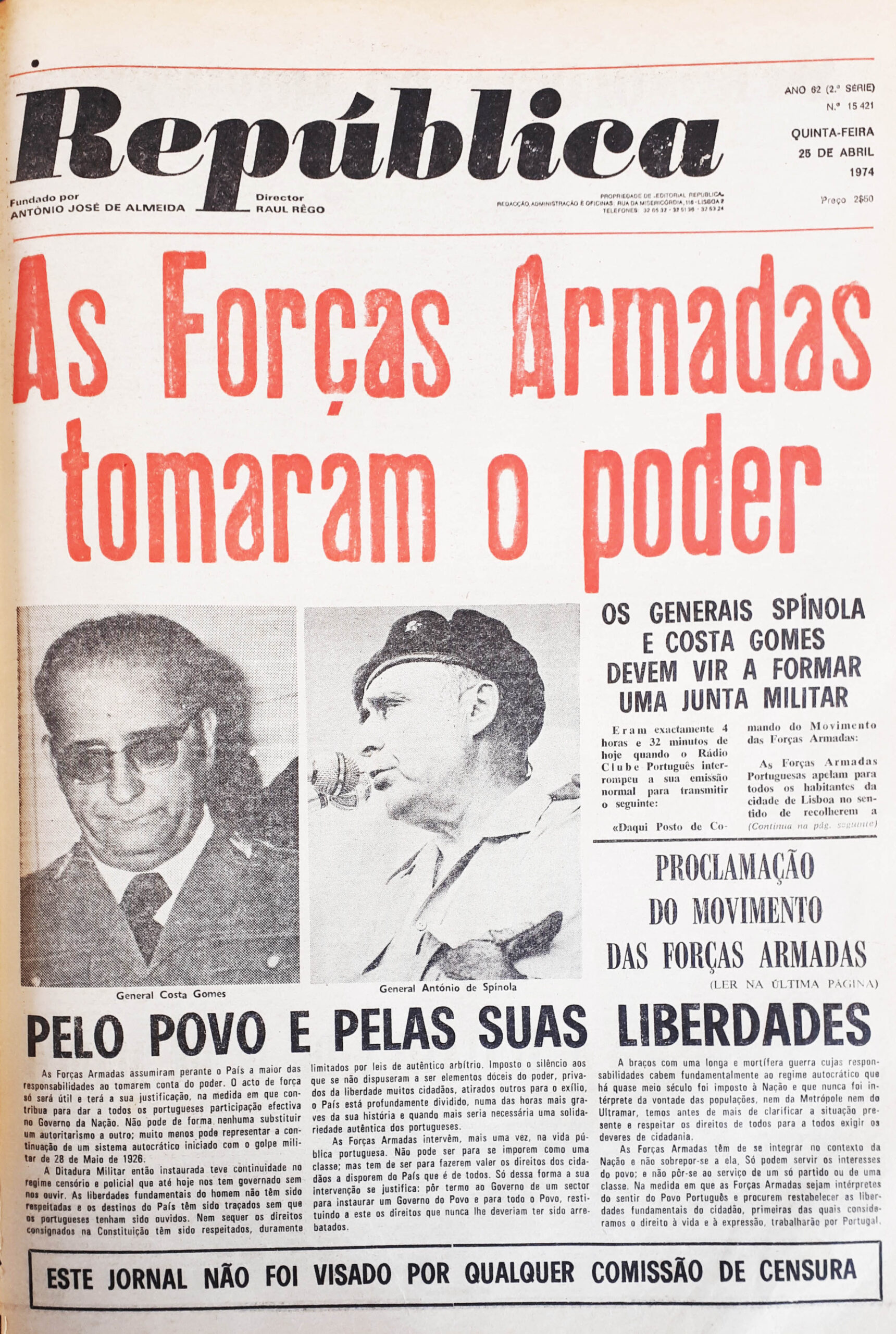
The lack of information led to a run on newspapers. In Faro, «they sold out within a few minutes of their arrival», as noted by «O Século», in the edition of April 27th, to complement: «the people of the Algarve, deprived of information (especially since the broadcasters stopped broadcasting in the wave of modulated frequency, captured in this province), they “robbed” the newspaper sales outlets, as soon as the distribution cars entered the localities».
Prudence, curiosity and expectation is how we can describe the reaction of the Algarve to the military movement on the 25th of April. But, if those lived a normal day, the same did not happen with the tourists. With the closure of air traffic at all airports, the Faro was no exception and only one plane from Luanda, which was destined for Lisbon, landed there. The 15 planned flights did not take place and, without them, tourists had to extend their holidays or travel by bus to Seville (note that at the time the journey was slow, as the bridge over the Guadiana was just a promise), as happened with travelers heading to Dusseldorf and Copenhagen. Flights intended for transport were also diverted to Seville. Faro.
In the April 27th edition, DN included a brief piece of news from Lagos, certainly from the previous day: «some buses arrived in this city, coming from Portimão and Silves, occupied by many young boys and girls, accompanied by several cars also full , expressing his joy at the change of Government, giving vibrant cheers to General Spínola, the Armed Forces, the Republic and Portugal».
He further informed that they were sporting couplets and, having gone to the door of the local regiment, where they expressed their satisfaction, they were received friendly by the commander. He then went, with some soldiers, to the building where the Portuguese Legion was installed, «having torn off the emblem of that corporation».
The students, «showing intense joy, crossed the main arteries of the city, after which they returned to their localities». He ended by mentioning that “part of the city's population joined the demonstrations of joy”.
The same edition, in a news story from Faro, undated, reports on the arrest, in that city, of members of the General Directorate of Security: «in the early hours of today, the DGS of Faro He surrendered, and the inspector and nine other agents were arrested.”
The surrender was triggered by the entry into the PIDE subdelegation of lieutenant colonel Bernardino dos Santos, 2nd commander of RI 4 of Faro, at 00:15. Shortly afterwards, more Army elements arrived, under the command of Major Caniné. The population that was there, according to «O Século» on the 29th, since 20pm the previous day, despite the lateness of the hour, «victorious the Armed Forces, in the person of this soldier», reads in the DN.
At around 00:41, the first jeep with a member of the DGS left, leading the crowd to demonstrate «rigorously and vigorously». Inside the building, the existing weapons and ammunition were listed.
Finally, at 3:05 am, a column of military vehicles was organized, which included weapons and former police officers, nine agents and inspector Jaime Paulino. «Popular enthusiasm then reached fever pitch. The people managed, for a moment, to overcome the police cordons, booing detained elements and defeating the Armed Forces».
The prisoners were taken to the RI 4 barracks. It should be noted that RTP filmed the environment in Faro that day, including at the time of the surrender of the DGS, as seen here.
The surrender of the political police in the Algarve capital was the only event that the newspaper «República», associated with opposition to the Estado Novo, alluded to in its pages about the Algarve, in the edition of the 27th.
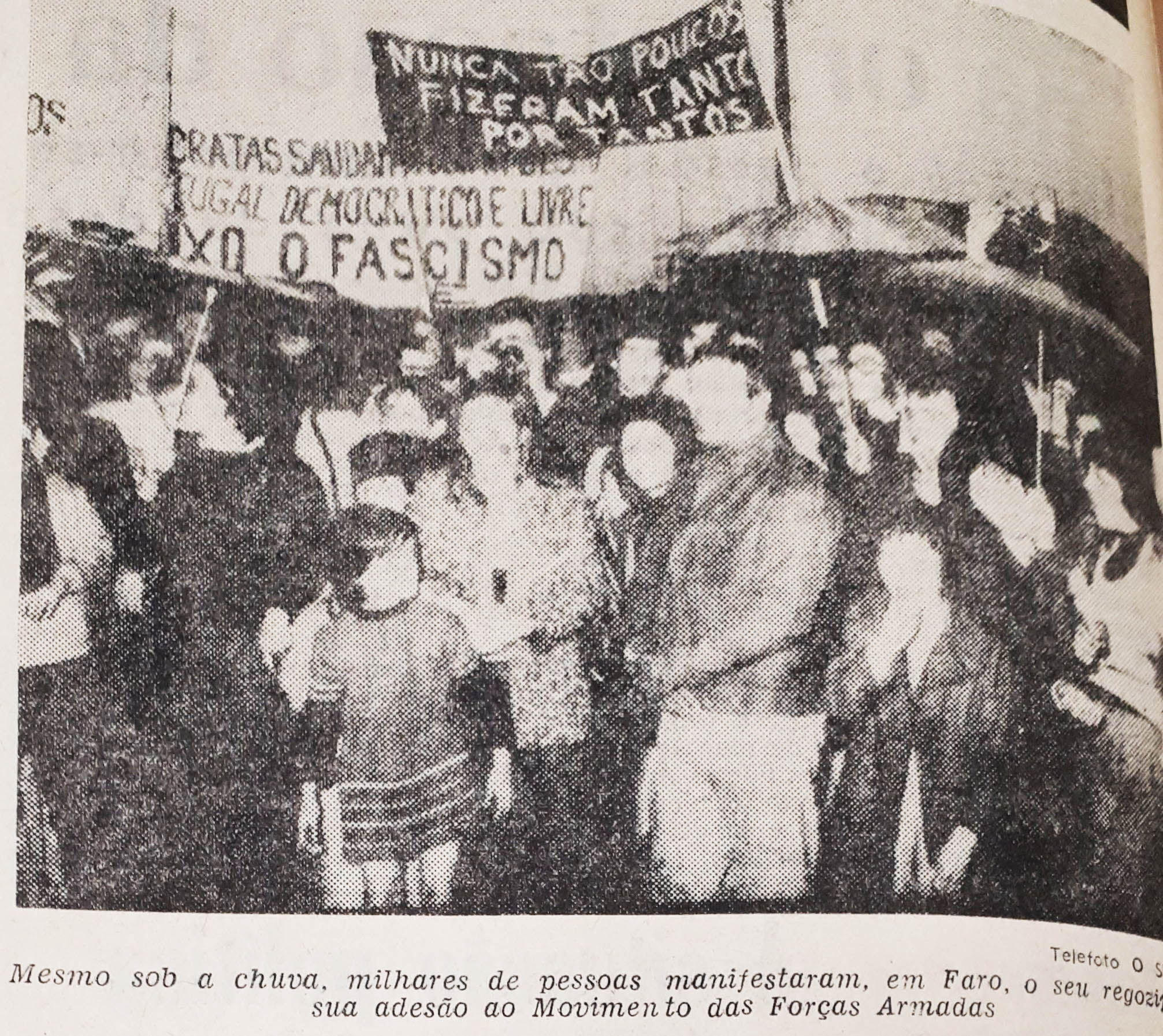
The Farenses did not move that night and the 27th of April was long and intense in Faro, as throughout the region. «Thousands of people paid homage in Faro the Armed Forces”: this was how DN referred to the demonstration that had taken place in the city, in its edition of April 28th.
People of all ages, despite the rain, "didn't budge", holding "posters applauding the Armed Forces Movement and the establishment of civic rights for the Portuguese people", winning the "coup d'état that put an end to the previous situation policy".
Aided by the Banda Artistas de Minerva de Loulé, the crowd headed towards Largo de São Francisco, where Infantry Regiment no. and popular enthusiasm was extraordinary». Next to the barracks, “the national anthem was heard”, and its commander, Colonel Octavio Pimentel, appeared at the door of the Regiment, who was accompanied by the 4nd commander, Lieutenant Colonel Bernardino Santos, and other officers, including majors Rolita Caniné and Manuel Francisco da Silva.
«In the windows of the Regiment building, many soldiers of all ranks also responded to the enthusiastic greetings of the people. He then witnessed the impressive ceremony of raising the national flag. Once the respective guard was formed, the respective bugle calls were played. The band played the national anthem and the dense crowd, in chorus, also accompanied it, after which they cheered Portugal», reads in that newspaper.
This was followed by a speech by “Dr. Luís Filipe Madeira, lawyer and member of the Democratic Electoral Commission, who, in 1969, ran for deputy for this constituency. He referred to the action of the Armed Forces and the fact that the people were entirely on the side of the Movement in this historic advance». A lecture that was greatly applauded, with Portugal and the Army following cheers.
In turn, the Regiment's commander, Colonel Octávio Pimentel, thanked the protesters for their support, and «a lady from the Algarve Democratic Electoral Commission delivered flowers to that officer, in honor of the Armed Forces». Finally, the national anthem was played again.
The protesters, accompanied by numerous vehicles, which played their “claxons” and displayed national signs and flags, then walked through some of the city's arteries, namely Rua de Santo António and Rua D. Francisco Gomes.
For the DN correspondent, the “demonstration took place with a high civic spirit”, constituting an unequivocal expression of popular applause for the Armed Forces Movement.
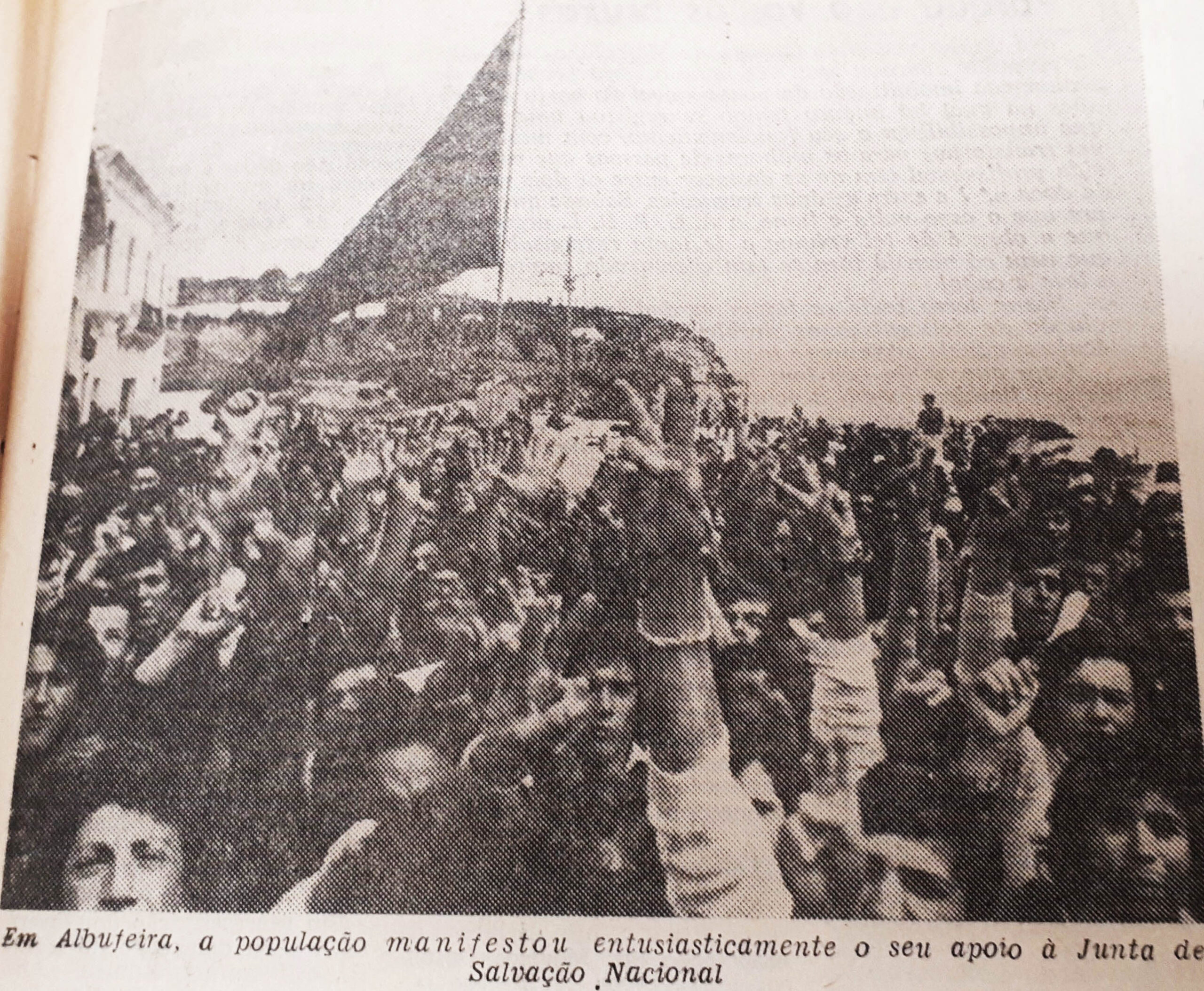
In turn, «O Século», in its edition of April 29th, brings us news from Albufeira: «at 15pm yesterday, a popular demonstration took place in this town, which carried the national flag and which included many people on foot and in their cars, who sang the national anthem and “slogans” such as “The united people will never be defeated”, “Long live the Armed Forces”, “Long live freedom”, “Long live General Spínola”. The protesters walked through the streets of the town and, next to the City Council building, people lowered the national and municipal flags, which they then raised again while singing the national anthem in chorus».
Meanwhile, according to that newspaper's reporter, on the walls of the City Council were written «in large letters, phrases such as “out with the president of this parish”, “down with the monopolists”».
The demonstration, led by José Manuel Osório and others, ended at Largo Eng. Duarte Pacheco, with another agreed to take place on the 1st of May. Also according to that diary: «at the moment the demonstration ended, someone remembered to point out a spectator as having belonged to PIDE, resulting in the intervention of our correspondent who, with the protesters, managed to calm the mood, transporting him to the barracks military, in Faro, where he was held in the custody of the Armed Forces».
Already in Lagos, DN reported on April 29: «in Praça Gil Eanes, in this city, a popular demonstration took place, during which Captain Branco spoke, who highlighted the victorious action of the Armed Forces Movement, advising the people to maintain their civility so as not to distort the meaning of military action, carried out in favor of the Nation's civil liberties».
This was followed by «the lawyer Vasco Gracias, a well-known democrat, who expressed his congratulations for the glorious action, which saved the Portuguese people from the shame and suffering of almost 50 years», as well as the architect Albuquerque Veloso, «to whom it was due the initiative of the demonstration and which evoked the names of former democrats».
After speaking to a “young aspiring officer from the Auto Driving Instruction Center No. 5, Mr. Luís da Gloria, who referred to the remarkable action of the Armed Forces and highlighted the painful suffering that political prisoners suffered during the 48 years of the previous regime».
According to that newspaper, «all the speakers were enthusiastically acclaimed by the crowd that filled Praça Gil Eanes». José de Oliveira Marreiro, vice-president of the same Municipality, was in charge of the City Council, while CICA 5 was commanded by Major Castela Rio.
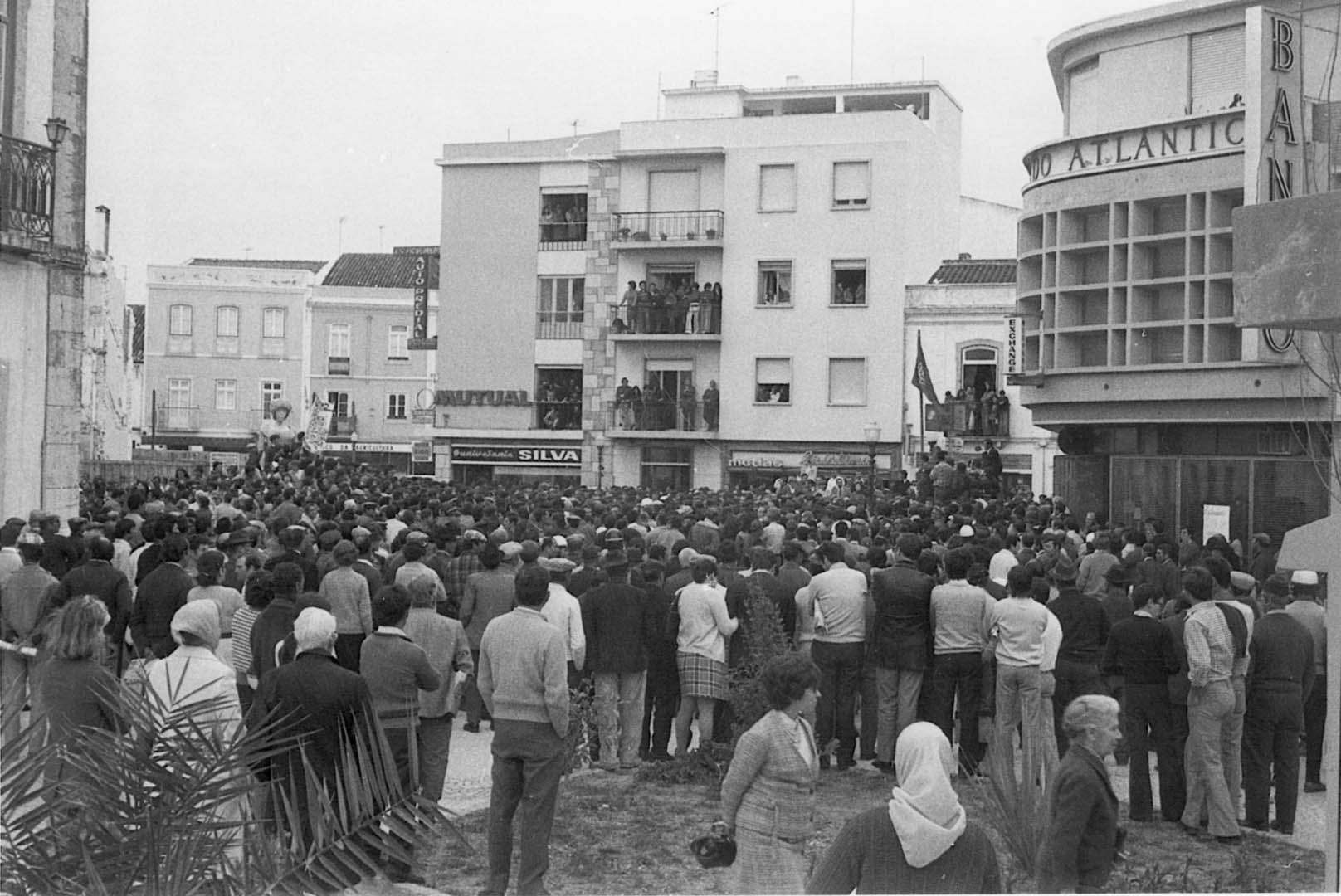
About Vila Real de Santo António, he published «O Século», in the edition of April 29th: «yesterday in Vila Real de Santo António, there was a demonstration of support for the Junta de Salvação Nacional, of joy at the change in the political regime , which brought together around 2000 people. At the site of Encalhe, a civic procession was formed, led by numerous residents of Vila Real, who, holding posters, supported General António Spínola and the Movimento Libertador, demonstrating against the political organizations of the previous regime».
Accompanied by the Castro Marim band, the participants went to the Fiscal Guard Barracks, where «Dr. José Furtado, professor at the Technical School, saluted the Armed Forces, for whose action he thanked, being responded to by the commander of the 4th company of that corporation, captain Dias Pinto ».
The procession then headed to the Porto Captaincy, «where they were received by the respective commander, captain-lieutenant Pires Dias, with the writer António Madeira Santos speaking there, who expressed his joy and that of the population of Vila Real, for the victory of the Armed Forces in the fight against the oppression that dominated the country».
In both places, the population sang the national anthem in chorus. The civic demonstration “ended at Praça Marquês de Pombal, where Joaquim Baptista Correia, a well-known democrat, thanked the population for their patriotism and composure”.
On the same day, DN, regarding the Pombaline village, added: «this village has set a beautiful example of civics, which has certainly surprised the countless foreigners who are summering in the Algarve. With avid interest, one listens to all the news from the media and even the televisions turned on in Spain to find out what people think abroad about the Armed Forces Movement. Border movement is taking place normally, under orders from the Fiscal Guard, and so far there have been no incidents».
However, the permanence of the tax guard in those functions would end up counting on members of the DGS, who, removed and handed over to the Armed Forces, would resume their service, although under the control of the former, causing discomfort in the Village, as reported on April 30 , "The century". Despite, and in the words of DN, from the same day: «life continues to proceed normally, here and in Monte Gordo, where there are countless foreign tourists vacationing».
The people of Albufeira also lived with «calm and expectation», as the same diary notes. Even so, on the busiest streets of Albufeira, “inscriptions had appeared supporting the Armed Forces and encouraging the active, but orderly, participation of citizens in the political life of the Nation”. There, as throughout the region, newspapers were popular and the news was listened to with the utmost attention.
Already in Faro, the call for a meeting by the Democratic Electoral Commission brought together hundreds of people, which the DN listed in the same edition of April 30th.
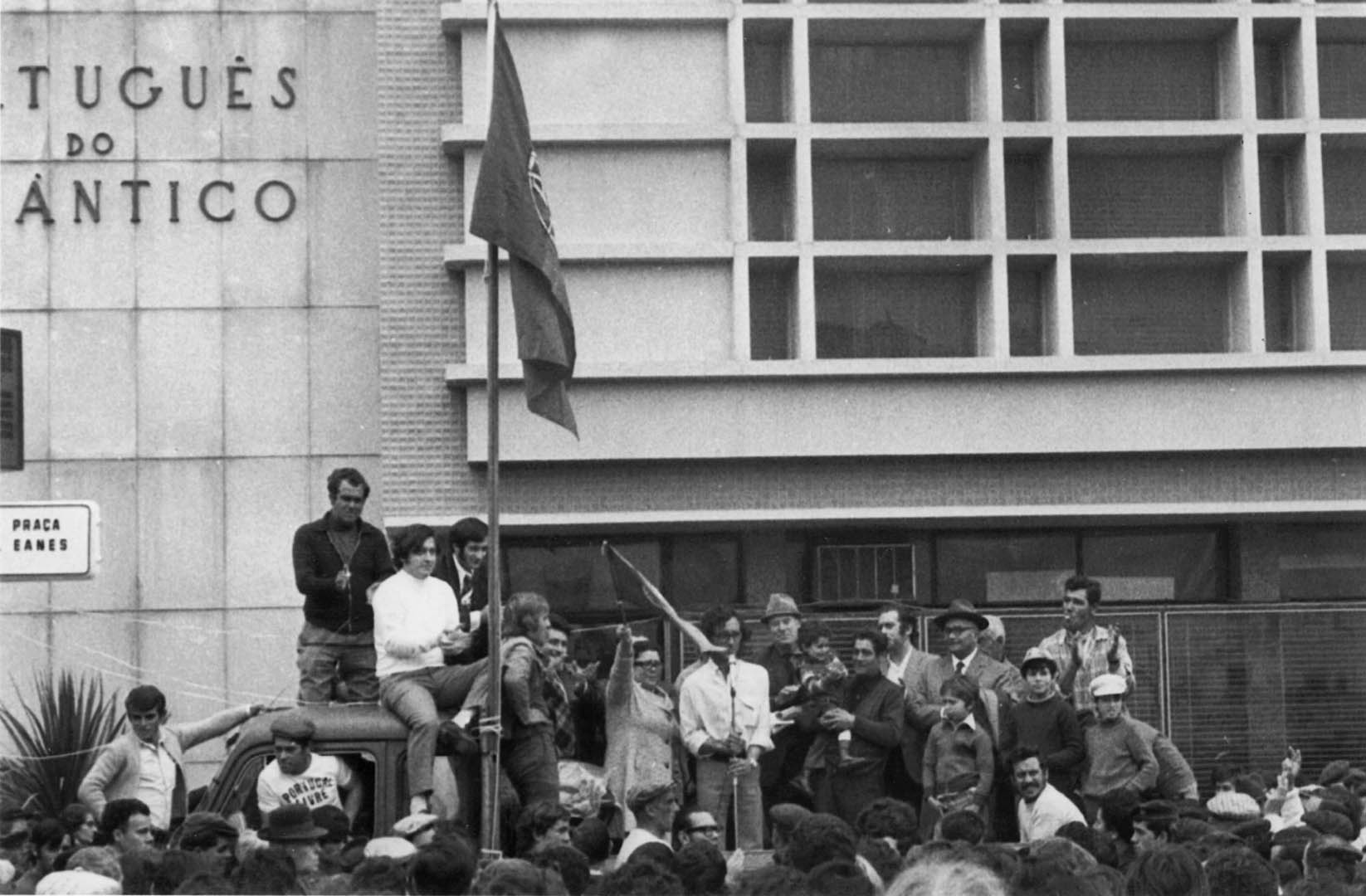
In turn, in Olhão, on the 28th, «a spontaneous demonstration of young people took place, who walked through the main streets of the town holding patriotic signs», reads in DN, dated 1st May. The City Council, in an extraordinary session and «unanimously», expressed its acceptance and agreement with the program established by the National Salvation Board.
In the same newspaper, a rally was reported in Monchique, at Casa do Povo, in «support and solidarity with the Armed Forces Movement». In the room, «completely full of all social classes in the municipality», António Pires Ventura, Maria Laura, António Albano Lopes, Luís Catarino and Diogo Filipe spoke about «the socio-political conditions existing until now in the municipality and in the Nation, in hopes for the future and the need for harmony among the Portuguese family». Captain José Varela and Major Carlos Leal Branco also spoke. The session ended “with cheers for the Army, for General Spínola and for freedom”.
Finally, «O Século», in the May 1st edition, announced the arrest, in Faro, «last night, by members of the Armed Forces, by over twenty-five agents from the General Directorate of Security. The prisoners were taken in a military vehicle to the Peniche prison».
Noting that, «apart from some troop movements, which the population continues to win, there is no unusual movement in the city», he reported that the newspapers continued «very competitive, for several days, and long queues are forming for the to obtain".
In other news, «O Século» added that a meeting had taken place promoted by Colonel Mendes Baptista, director of CISMI, where he sought to clarify that, from the first hour, he had supported the Military Movement, with that unit being responsible for taking over the facilities of the DGS, in Vila Real.
If the 25th of April was normal in the Algarve and for the people of the Algarve (tourists saw their flights cancelled), even though, with expectation and caution, the majority took to the streets on Saturday, 27th, or in the following days, rejoicing with the Military Movement, as in Faro, Albufeira, Tavira, Lagos and Vila Real.
It should be noted that most of the news was not dated, so it is not possible to determine the exact day of the events described from them. Demonstrations, previously prohibited, became widespread, with slogans, painted walls, and some attempts to settle scores with former political police agents (the roles were reversed, the executioners were now arrested and transformed into victims) .
However, the true consecration of the Captains Movement occurred on May 1, 1974, a national holiday, when the Algarve took to the streets en masse, glorifying it. Unfortunately, the national press consulted did not publish news from Portimão, Lagoa, Silves or Loulé. If, on the one hand, it would be impossible for newspapers to refer to all the towns in the country, or even to have correspondents in all of them, on the other, the presence of troops in Tavira, Faro and Lagos, or the border condition of Vila Real, will have made these locations privileged.
Almost 48 years after the military extorted, on May 28, 1926, the country's fate from the majority of Portuguese people, giving rise to the longest authoritarian regime in Western Europe, power returned, through the same military, to the people and through suffrage. universal to all Portuguese people, without exception.
However, not everyone witnessed and lived those sublime days, many succumbed to the torture of the political police and arbitrary arrests, often for just daring to express that they thought differently. But all that was now in the past, Democracy was finally a reality. It was 50 years ago.
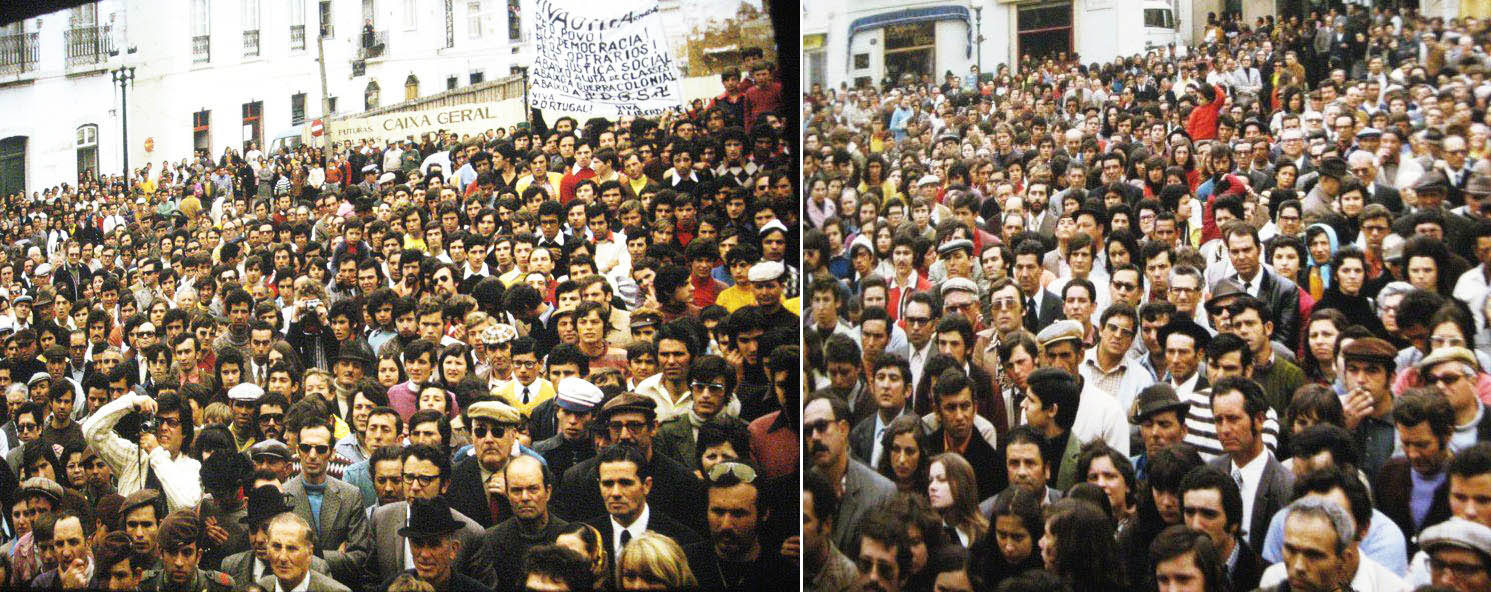
Read also How did the Algarve newspapers report on the 25th of April 1974?
Author Aurélio Nuno Cabrita is an environmental engineer and researcher of local and regional history, as well as a regular collaborator of the Sul Informação.
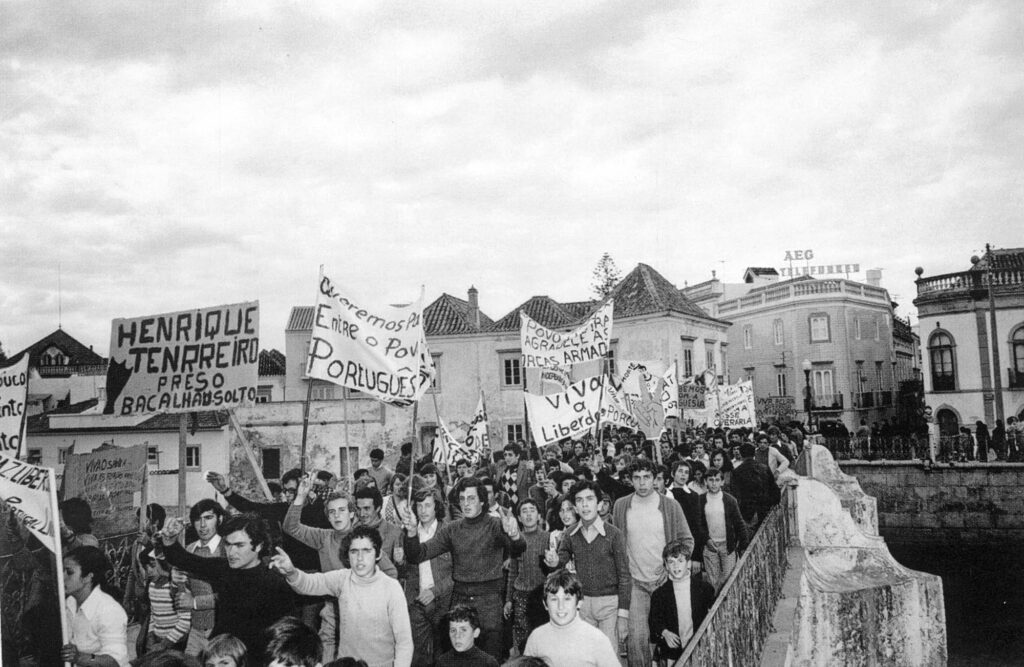
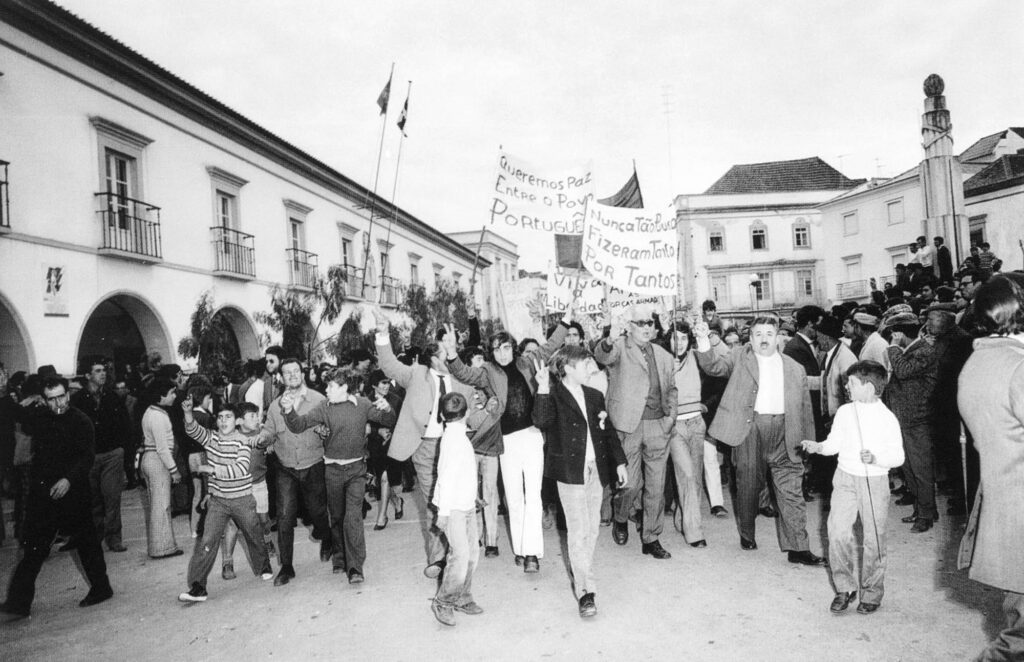
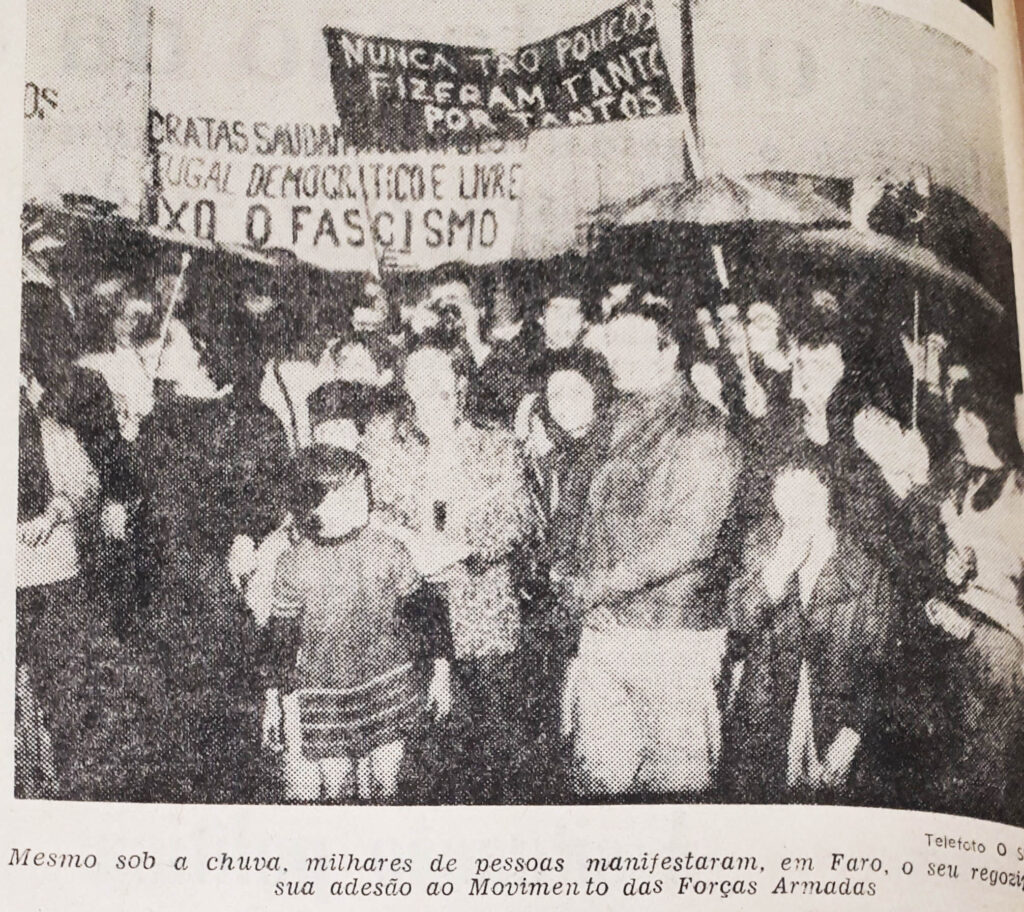
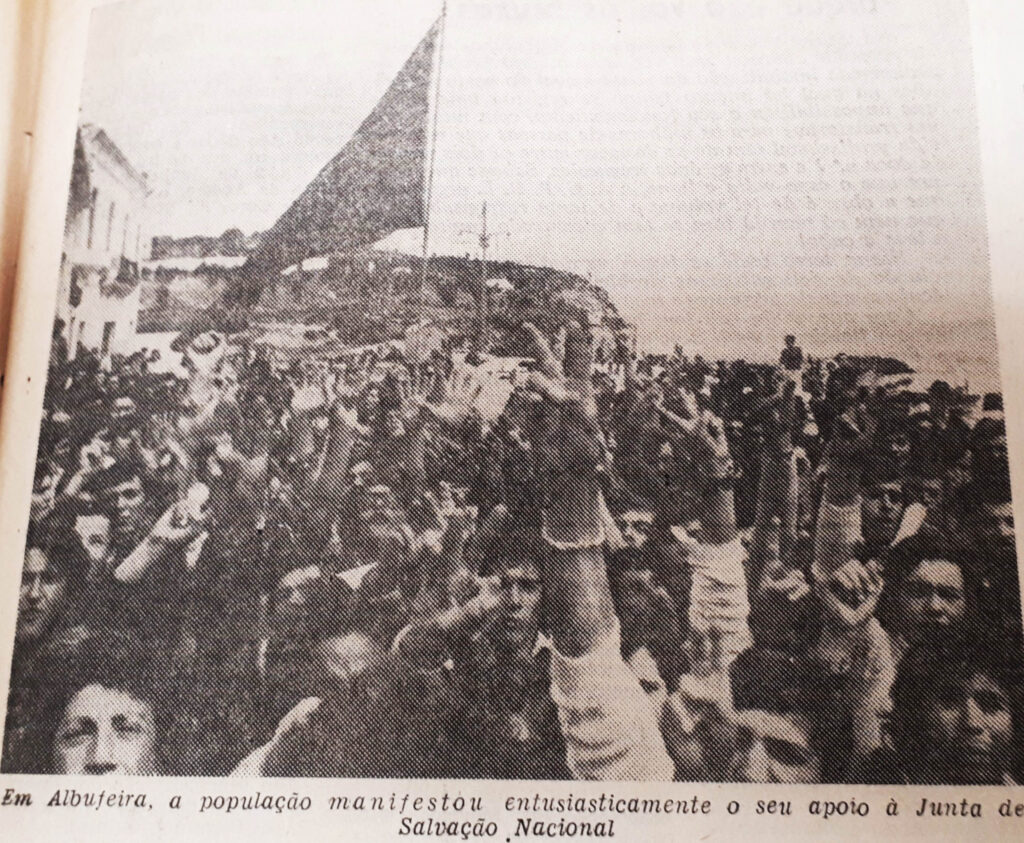
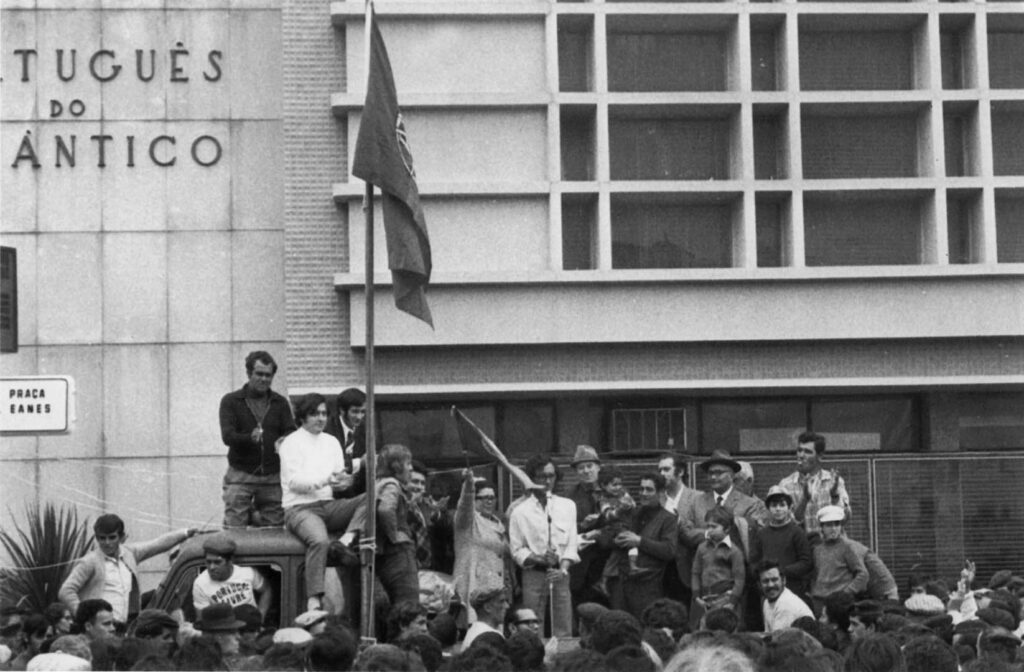
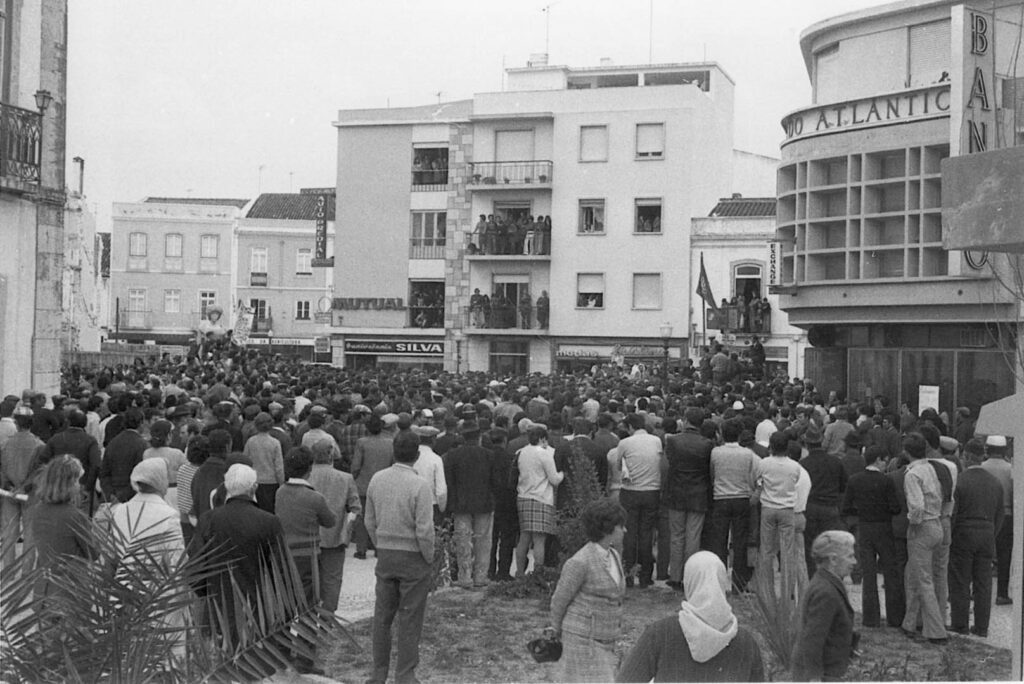
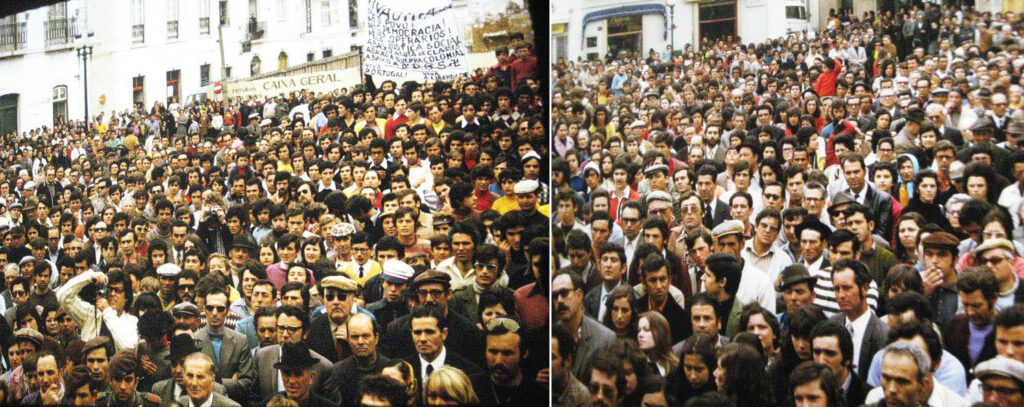
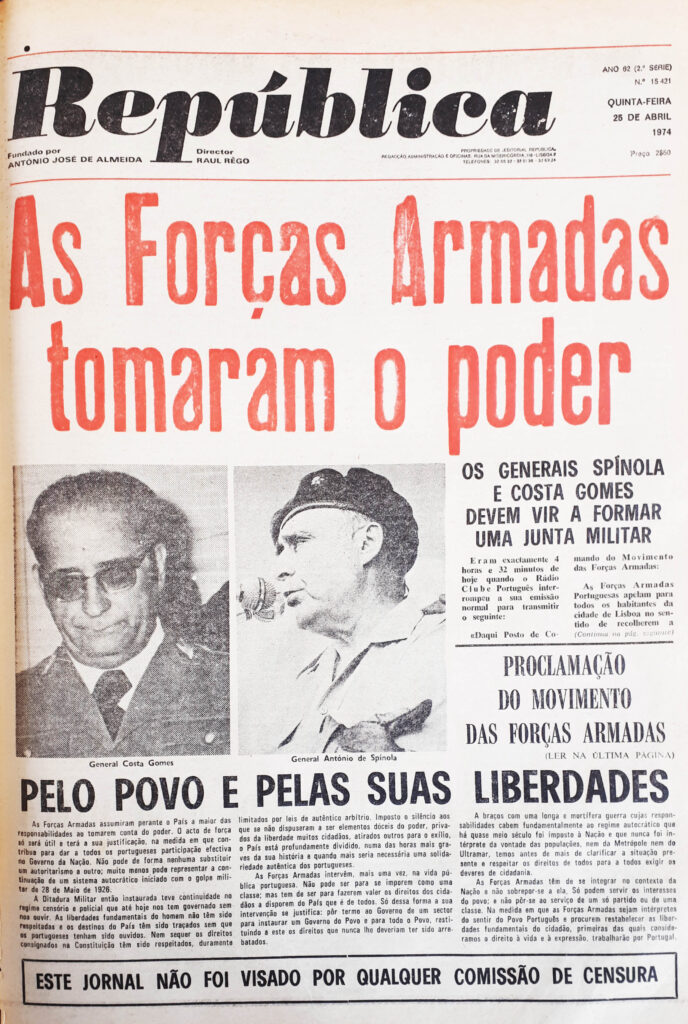


















Comments